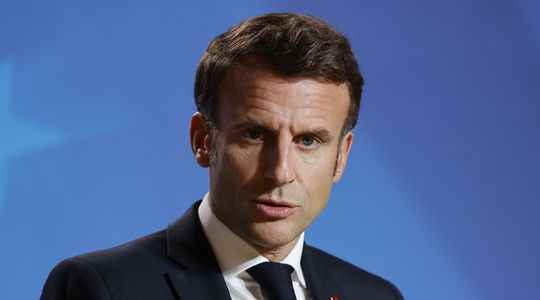Suddenly, in the heart of the Brussels night, European leaders rush to the microphones. Between 2 and 3 a.m. this Friday, October 21, after a week marked by the misfires of the Franco-German engine, it is a question, in particular for Emmanuel Macron and Olaf Scholz, of emphasizing as quickly as possible that European unity has survived and that the 27 have managed to agree on the thorny issue of energy.
“We have laid the foundations for Europe to be able to take decisions together”, explains the German Chancellor. “We don’t always have the same position, all of this required hard work, but I think that European unity is key”, argues, a few meters further on, the French president. The message is clear: once again, the 27 have succeeded in pushing back the specter of disunity.
Pressure from Macron
However, have they made much progress? They simply agreed on a roadmap to combat soaring prices. The European Commission and energy ministers are mandated to take concrete decisions urgently, in particular to cap gas and electricity prices. In reality, Berlin has let go of the ballast, agreeing to the idea that Brussels is preparing a legislative proposal on this subject, in response to the pressing demands of the French or the Italians.
Arriving in Brussels, Emmanuel Macron put pressure on himself, saying that it was not good for Europe for Germany to isolate itself. Chancellor Scholz has therefore ended up saying yes, even if he does not hide that he has “doubts” about the feasibility of a mechanism modeled on that already put in place by Spain and Portugal to subsidize gas electricity generator. It will probably take several meetings of energy ministers to reach a result that is still uncertain.
The European machine has not stalled, but it seems to be advancing very slowly and laboriously in these times of war and crisis which, on the contrary, plead for rapid and effective decisions. The complexity of a three-party coalition in Berlin, the “secret” personality of an Olaf Scholz still difficult to read for his French interlocutor and the questioning of some of the German fundamentals do not simplify an already complex equation with 27 unknowns by nature.
Still, Europeans can always console themselves by looking to the United Kingdom. Thursday, October 20, the resignation of Liz Truss fell right when the 27 gathered in the European capital. The perfect opportunity to mirror the two events and ask a fundamental question: almost three years after Brexit, is it finally better to be a member of the European Union or to have left it? Despite the economic difficulties of the Franco-German axis, the answer seems, these days, quite easily settled.
